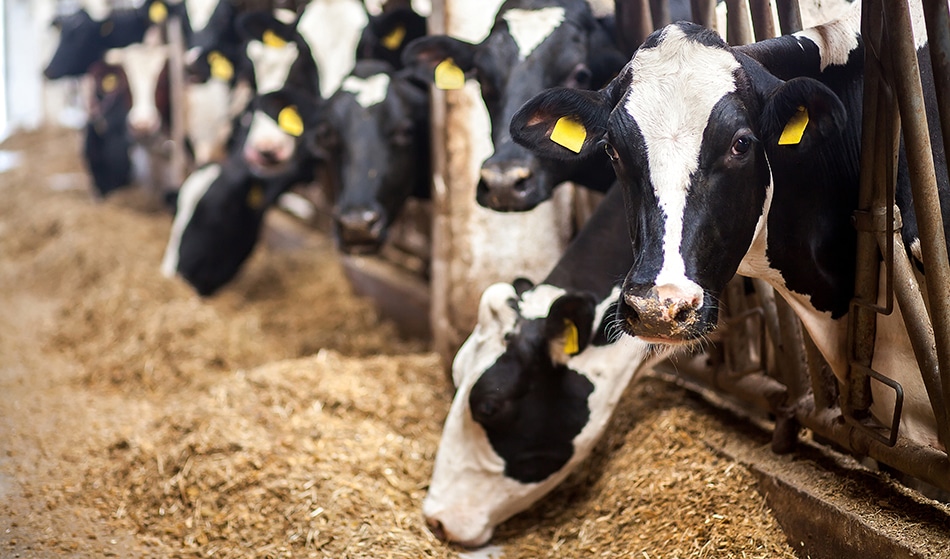ISO 22964 Cronobacter spp. Detection in Agricultural Feeds
The detection of Cronobacter species, particularly in agricultural and animal feed products, is critical for ensuring food safety and quality. This service adheres to the stringent requirements outlined by ISO 22964, which provides a standardized method for detecting Cronobacter spp., including Cronobacter sakazakii, one of the most virulent pathogens known to cause severe infections in infants.
The process begins with the collection and preparation of feed samples. Samples are typically collected from various points within the production facility, ensuring a comprehensive assessment of potential contamination sources. Once collected, specimens undergo rigorous quality control checks to ensure they meet the necessary standards for microbiological testing.
Sample preparation involves dilution and plating techniques designed to enhance the recovery of Cronobacter spp. from feed matrices. This step is crucial as it allows for accurate enumeration and identification of the pathogen. Following sample preparation, selective media such as TSS (Tryptic Soy Sucrose) or other appropriate media are used to isolate potential Cronobacter colonies.
Identification of Cronobacter spp. is achieved through a combination of biochemical tests, PCR-based methods, and serotyping. The use of advanced molecular diagnostics provides high specificity and sensitivity, ensuring accurate identification even in complex matrices like animal feeds. This approach minimizes the risk of false positives or negatives, which could have significant implications for food safety.
The ISO 22964 methodology emphasizes the importance of maintaining a clean laboratory environment to prevent cross-contamination during testing. Strict adherence to sterility protocols is essential, especially when dealing with samples that are intended for infant consumption. The use of validated reagents and standardized procedures ensures consistency across different batches or facilities.
Upon completion of the testing process, results are reported in accordance with ISO 22964 guidelines. Reporting includes detailed information about the presence or absence of Cronobacter spp., along with any quantitative data such as colony-forming units (CFU) per gram. This information is vital for manufacturers to make informed decisions regarding product safety and quality.
The significance of this service extends beyond mere compliance; it plays a pivotal role in safeguarding public health by preventing the distribution of contaminated feeds that could lead to severe illnesses, particularly in vulnerable populations such as infants. By adhering to ISO 22964 standards, laboratories ensure robust detection capabilities, contributing to a safer food supply chain.
Regular audits and validation exercises are conducted to maintain the highest level of accuracy and reliability in Cronobacter spp. testing. These measures help identify any potential improvements or areas for enhancement within the laboratory operations. The commitment to ongoing quality assurance is reflected in our consistent compliance with international standards, ensuring that every test meets the stringent requirements set by ISO 22964.
In summary, this service offers a comprehensive approach to detecting Cronobacter spp. in agricultural feeds, leveraging advanced microbiological techniques and adherence to international standards. By providing accurate and reliable results, we contribute significantly to enhancing food safety protocols and protecting public health.
Quality and Reliability Assurance
- Strict adherence to ISO 22964: Ensures that all testing procedures align with the latest international standards.
- Regular calibration of equipment: Maintains accuracy in microbiological measurements throughout the testing process.
- Comprehensive quality control checks: Before and after each test, samples are verified to ensure they meet the necessary criteria for analysis.
The laboratory maintains a stringent quality management system that includes regular audits, internal reviews, and external certifications. These measures guarantee that every aspect of the testing process adheres to the highest standards of accuracy and reliability. By leveraging these protocols, we ensure consistent and dependable results that can be trusted by all stakeholders involved in food safety.
The use of advanced instrumentation and validated reagents further reinforces our commitment to quality assurance. Our team of experts is trained to handle complex samples with precision, ensuring that no detail goes unnoticed during the testing process. This dedication to excellence ensures that clients receive accurate and actionable insights from their microbiological testing.
Customer Impact and Satisfaction
The implementation of ISO 22964 Cronobacter spp. detection in agricultural feeds significantly impacts customers by ensuring the safety and quality of their products. This service helps manufacturers meet regulatory requirements, thereby protecting public health and maintaining consumer confidence.
Clients benefit from transparent reporting that highlights any findings related to Cronobacter spp., enabling them to take proactive measures if necessary. The detailed reports provided also assist in identifying potential contamination sources within the production process, allowing for targeted interventions to prevent future occurrences.
By partnering with a laboratory that adheres to ISO 22964 standards, customers can rest assured that their products meet stringent quality benchmarks. This enhances brand reputation and fosters trust among consumers who value food safety and hygiene.
The satisfaction of our clients is paramount, and we strive to deliver exceptional service through reliable testing results and timely communication. Feedback from satisfied clients further reinforces our commitment to excellence in agricultural feed microbiology testing.
Competitive Advantage and Market Impact
- Enhanced reputation: Adherence to ISO 22964 standards positions clients as leaders in food safety, enhancing their market standing.
- Increased customer trust: Transparent reporting and proactive measures against contamination build long-term relationships with consumers.
- Regulatory compliance: Ensures that products meet all necessary regulatory requirements, avoiding potential legal issues or recalls.
The ability to consistently detect Cronobacter spp. in agricultural feeds provides a competitive edge over competitors who may not have such robust testing protocols in place. Clients can differentiate themselves by offering safer and higher-quality products, which is increasingly important as consumer awareness of food safety grows.
In the global market, compliance with international standards like ISO 22964 sets a benchmark for excellence. This service helps clients stay ahead of regulatory changes and emerging trends in food safety, ensuring they remain relevant and competitive in their respective industries.





